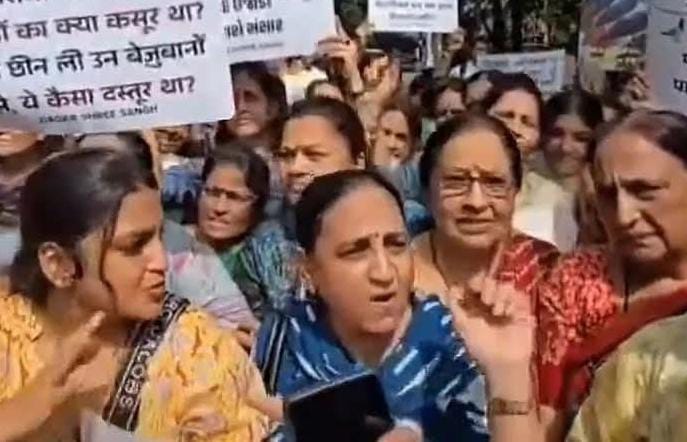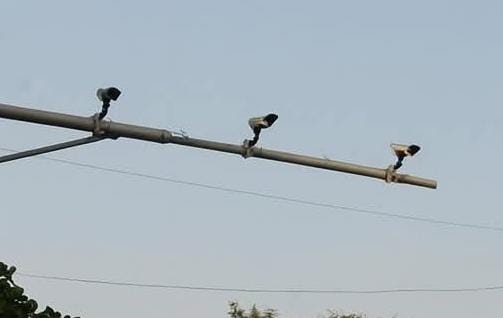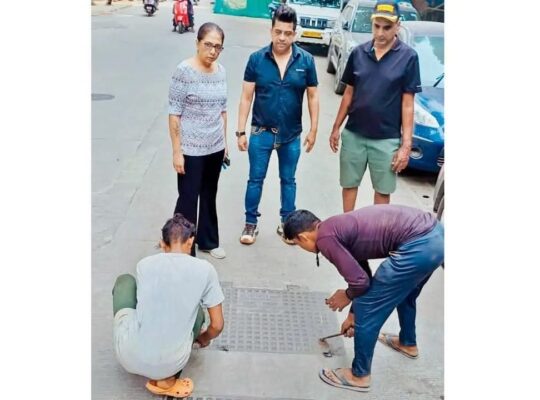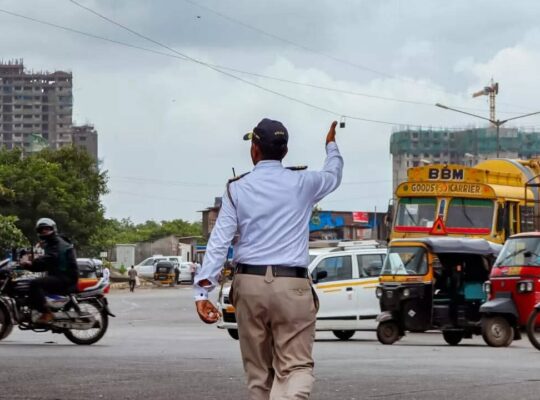Mumbai : Members of the Jain community held a peaceful protest in Colaba on Sunday morning, marching from a local Jain temple to the Gateway of India to oppose the Brihanmumbai Municipal Corporation’s (BMC) actions against pigeon-feeding areas, known as kabootar khanas.
Holding placards in Hindi and Marathi that read, “What was the fault of the poor birds, that you destroyed their home?”, the protestors demanded protection for pigeons and recognition of traditional feeding practices.
The protest was triggered by BMC’s recent move to barricade a popular kabootar khana in Dadar with bamboo fencing, effectively shutting it down. The action has sparked backlash from animal lovers and religious groups who consider feeding birds both compassionate and sacred.
Adding to the tension, Mumbai Police recently filed what is believed to be the city’s first FIR for pigeon feeding—under public nuisance laws—punishable by up to one year in jail. Citizens have now approached courts, seeking protection for age-old pigeon-feeding traditions, claiming them as part of Mumbai’s cultural heritage.
Health officials, however, argue that pigeon droppings pose serious risks, including respiratory infections and rare diseases. The issue was raised in the Maharashtra Legislative Council after a reported death linked to prolonged exposure to pigeon droppings, prompting a state-wide crackdown on unauthorised feeding zones.
This controversy reflects a broader urban challenge. With pigeon populations booming across Indian cities, experts warn of a growing conflict between wildlife coexistence and public health, urging a balanced approach in urban planning.











